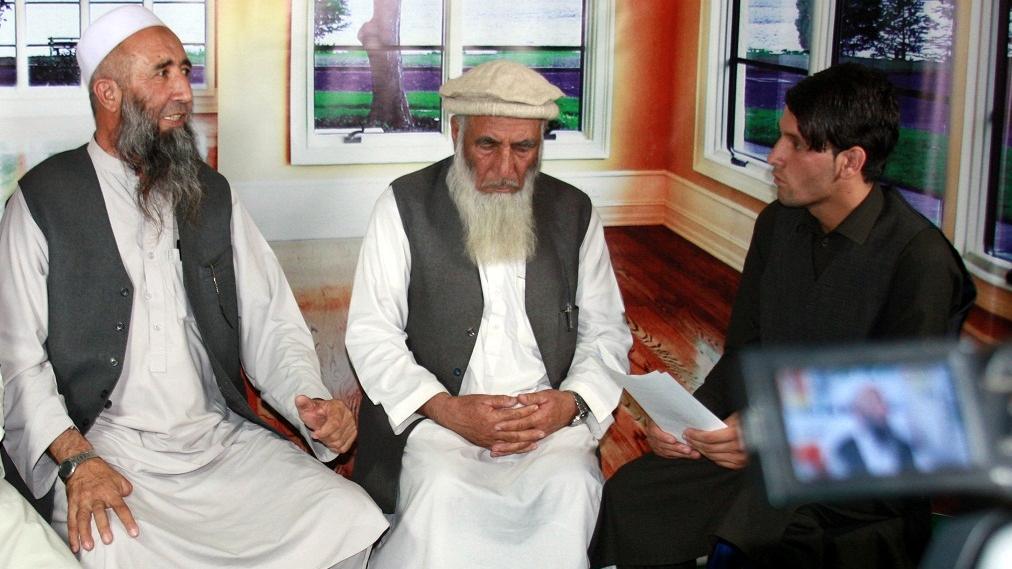ASADABAD - Community-level peace efforts in eastern Afghanistan are demonstrating the power of consensus-building, even against the backdrop of the broader conflict playing out across the country, said panellists in a UN-backed programme broadcast out of the provincial capital of Asadabad.
For the discussion organized by UNAMA’s Jalalabad regional office, local media outlet Zala TV brought together community leaders to describe efforts to reduce conflict among Kunar’s communities. The programme, aired on television and radio, reached an audience estimated at 600,000 people in and around the provincial capital.
The panel featured representatives from the Provincial Peace Council, civil society and the religious community, all of whom discussed the benefits of fostering intra-community cooperation in solving conflict. They also discussed the broader conflict, and called upon the government and anti-governmental elements to reconcile in the interest of improving the lives of communities across the country.
“Peace and reconciliation should be priorities for every Afghan, not only the government and peace council,” said Shawali Salarzai, a civil society member. “We are working in several fields and supporting the efforts of the peace council, as we believe that development and peace are interlinked.”
Haji Gul Alam, a member of Kunar’s Peace Council, talked about the broader conflict in Afghanistan being driven by a wide variety of complex factors. “It cannot be solved easily,” he said. “It requires continuous work by the government along with civil society, elders, women and youth.”
Alam described how the council has launched several community-awareness programmes on peace, leveraging the power of religious scholars, youth groups, women’s rights activists and media outlets. He outlined the positive impact these programmes have had in building consensus, and noted that development projects to strengthen community ties are essential.
“In the areas where reconciled people are living, having good lives is important, as it will help encourage others stop fighting to and embrace peace,” he said.
Mawlawi Abdul Rahman, another panellist and the head of Kunar’s Islamic Scholars’ Council, said the offer of peace made by President Ashraf Ghani is welcomed. “God says that peace is goodness,” stressed Rahman. “So if we are making efforts for peace, it means that we are pleasing God.”
Rahman talked about the importance of religious leaders delivering messages of reconciliation. “During last five or six months, we have convened some Peace Jirgas that were fruitful, resulting in solving local conflicts between communities,” he said.
Kunar is part of Afghanistan’s eastern region, which runs up against a rugged border with Pakistan. In Kunar, and in other provinces across Afghanistan, UNAMA has been working with communities to create platforms using radio, television and social media for Afghans to engage in dialogue and discuss key issues affecting their communities.
UNAMA supports the Afghan people and government to achieve peace and stability. In accordance with its mandate as a political mission, UNAMA backs conflict prevention and resolution, promoting inclusion and social cohesion, as well as strengthening regional cooperation. The Mission supports effective governance, promoting national ownership and accountable institutions that are built on respect for human rights.
UNAMA provides 'good offices' and other key services, including diplomatic steps that draw on the organization’s independence, impartiality and integrity to prevent disputes from arising, escalating or spreading. The Mission coordinates international support for Afghan development and humanitarian priorities.






